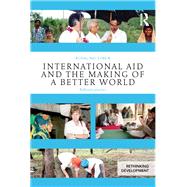- ISBN: 9780415656733 | 0415656737
- Cover: Hardcover
- Copyright: 4/17/2014
The testing question for international development aid is how to support positive change and help prevent that which is bad. Rosalind Eyben, scholar-activist and lifelong development practitioner, seeks to answer that question through a vivid insight into the world of aid its people, ideas and values. Inter-weaving auto-ethnographic narrative into a broader historical analysis of the contested ideals and politics of aid operations from the 1960s to the present day, she critically examines her own behaviour to illustrate the ironies and unintended consequences of aid practice. Eyben discusses what happens when we try to improve people's lives in far-away countries and warns how self-deception may construct obstacles to the very change desired. Eyben considers the challenge to traditional aid practices posed by new donors like Brazil, China and India who speak of history, culture and relationships. She argues that to help make this a better world, individuals and organisations whether they are long-standing donors or from the emerging powers must respond self-critically to the dilemmas of power and knowledge that shape aid's messy relations, and should learn the habit of regularly reflecting on their own practice. Written in an accessible way with vignettes, stories and dialogue, this critical history of aid provides practical tools and methodology for development practitioners, and students and researchers in development studies, anthropology and international studies to adopt the habit of reflexivity when helping to make a better world.






